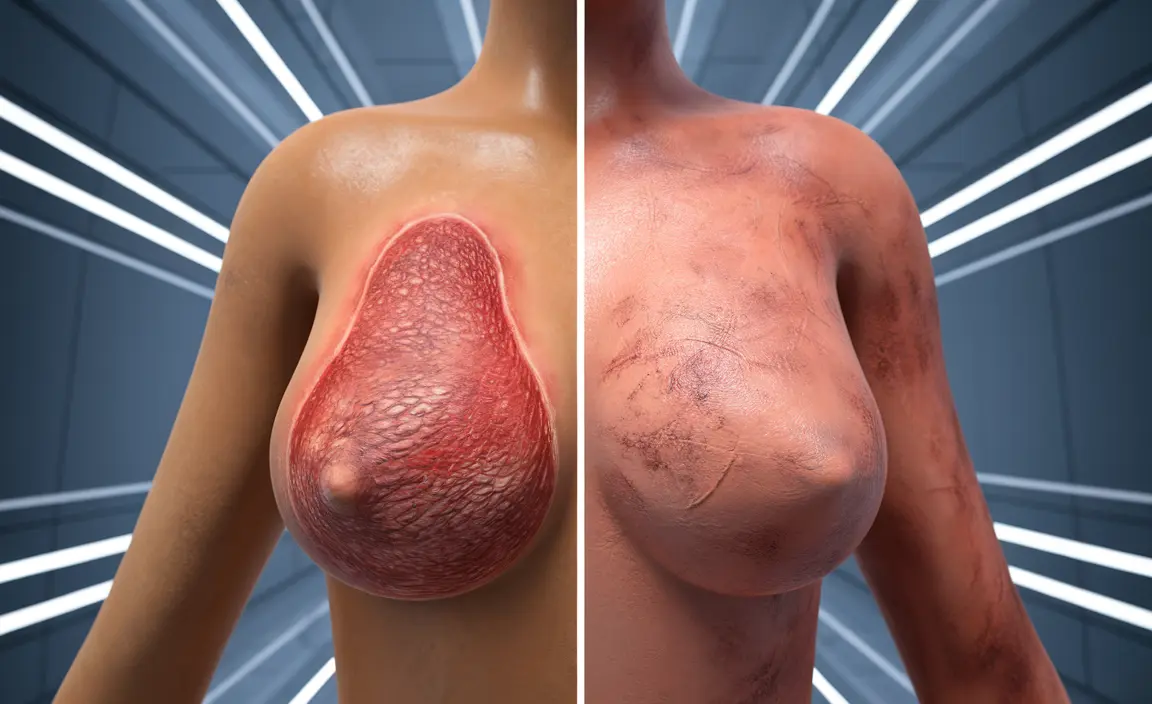When experiencing skin changes on the breast or nipple area, it's crucial to understand the differences between two conditions that can appear similar at first glance: Paget's disease of the breast and eczema. While both conditions can cause redness, itching, and scaling of the skin, their underlying causes and treatment approaches differ significantly. Understanding these differences is essential for proper diagnosis and timely medical intervention.
Understanding Paget's Disease of the Breast
Paget's disease of the breast is a rare form of breast cancer that affects the nipple and the surrounding areola. Unlike common skin conditions, it occurs when cancer cells grow in the skin of the nipple area. This condition typically develops in conjunction with an underlying breast tumor, making early detection and proper diagnosis crucial.
Characteristic Signs of Paget's Disease
The key identifying features of Paget's disease include:
- Persistent redness and scaling of the nipple and areola
- Burning or itching sensation
- Flattening or inversion of the nipple
- Yellow or bloody discharge
- Thickened skin texture
- Usually affects one breast only
Understanding Breast Eczema
Breast eczema, also known as dermatitis, is a common inflammatory skin condition that can affect any part of the breast, including the nipple and areola. Unlike Paget's disease, eczema is not cancerous and typically responds well to topical treatments.
Common Features of Breast Eczema
Typical symptoms of breast eczema include:
- Dry, scaly patches
- Intense itching
- Redness and inflammation
- May affect both breasts
- Can come and go with flare-ups
- Often associated with a history of allergies or atopic conditions
Diagnostic Approaches
Healthcare providers use several methods to differentiate between these conditions:
- Physical examination
- Detailed medical history
- Skin biopsy when necessary
- Mammogram or breast imaging
- Assessment of other breast changes
Treatment Differences
The treatment approaches for these conditions vary significantly due to their different underlying causes:
Paget's Disease Treatment
Treatment options typically include:
- Surgery (mastectomy or breast-conserving surgery)
- Radiation therapy
- Chemotherapy if necessary
- Regular follow-up care
Eczema Treatment
Management strategies focus on:
- Topical corticosteroids
- Moisturizers and emollients
- Identifying and avoiding triggers
- Antihistamines for itching
- Lifestyle modifications
Frequently Asked Questions
What are the main symptoms that help distinguish Paget's disease of the breast from eczema?
The main distinguishing symptoms include persistent one-sided involvement in Paget's disease, nipple changes or inversion, and the presence of discharge. Eczema typically affects both breasts, responds to topical treatments, and may be associated with other allergic conditions.
How do doctors diagnose whether nipple skin changes are caused by Paget's disease or eczema?
Doctors use a combination of physical examination, medical history review, and diagnostic tests. A skin biopsy is often necessary to confirm Paget's disease, while eczema may be diagnosed based on clinical presentation and response to initial treatments.
What causes Paget's disease of the breast, and how is it different from eczema in terms of underlying risk factors?
Paget's disease is caused by cancer cells migrating to the nipple area, often associated with an underlying breast tumor. Eczema, however, is an inflammatory condition triggered by environmental factors, allergies, or genetic predisposition.
What treatment options are available for Paget's disease compared to eczema of the breast?
Paget's disease requires cancer-specific treatments such as surgery, radiation, or chemotherapy. Eczema is managed with topical medications, moisturizers, and trigger avoidance.
When should I see a doctor if I notice red, scaly, or itchy skin changes on my nipple or breast?
Seek medical attention if you notice persistent skin changes lasting more than two weeks, especially if they affect only one breast or don't respond to over-the-counter treatments. Any nipple changes or discharge should be evaluated promptly by a healthcare provider.




